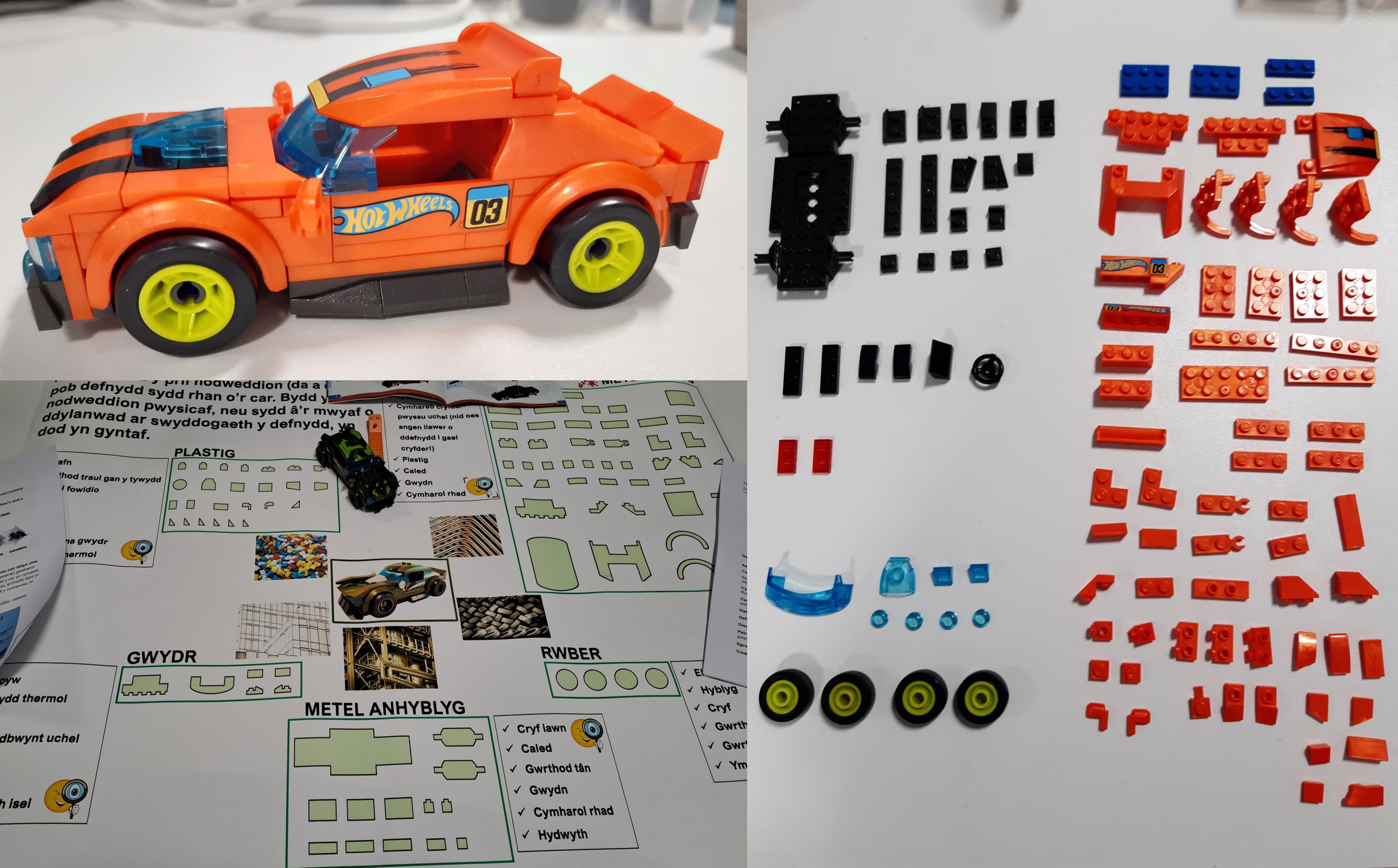We are working directly with an engineering company (Tata Steel in my case) to solve one of its industrial challenges and as a result our research will be guided by current industrial needs rather than just academic curiosity. In addition, in order to maintain our relationship with our partner firm, we are expected to hold meetings and provide regular formal reports to update them on our progress. In this way, it's more like having a '9-5' job and a manager to report back to. I love this style of working, believing it will prepare me well with transferable skills for the industrial world. However, and perhaps unsurprisingly, there are few opportunities to use Welsh formally in my work, and unfortunately this is reflected across the STEM sector at times. As such, and as someone who studied her undergraduate degree outside Wales, I am determined to find other ways to use it!
Interestingly, in 1920 the physicist Niels Bohr, famous for his contribution to the field of atomic structure, said, "... when atoms are considered, such as poetry only language can be used.". That is, scientific researchers will have to have a good grasp of their language and how to use it to enable the reader to understand the concept being conveyed. It is not the language that matters but how it is used. A 2021 Bangor University report also highlighted the need to challenge the misconception that it is not possible to monetise STEM subjects in Welsh. It's amazing that people have the opportunity to produce their doctorate in Welsh, a living example of the suitability of Welsh to all academic fields, but what about other ways to promote our native language in the STEM fields (particularly the engineering field)?
The saying, "You can't be what you can't see" creates a reaction of positivity for people to reframe Welsh as a language for everyone in all fields
The well-known saying says, "You can't be what you can't see." and outreach is a good opportunity to consider representation in the engineering field. I think it is important for children who have access to Welsh, whether as a home language, school language, social language or any other context, to see Welsh being used in the professional and scientific world, to increase their appreciation of their bilingual learning.
Linguistic representation is important in STEM subjects, but also we need to encourage more women into the field. While girls now have every right to pursue a STEM career, it must be realised that this is only half the battle. We must ensure that all women have access to people, information, and resources that destroy stereotypes and inspire them with diverse, positive, and encouraging examples, like any other minority group.
Over the past year, I've led the development of a Welsh-medium outreach workshop run by the Royal Academy of Engineering, focusing on the United Nations Sustainable Development Goals (SDGs'). The focus of the workshop was SDG 12 ('Responsible Production and Consumption') which is based on the concept of the Circular Economy which is an idea that consumption life should be infinite as a cycle. Also, as part of the workshop, we encourage the children (usually at Key Stage 3) to consider skills not often associated with engineering, such as creativity and divergent thinking, through activities including dismantling toy cars, exploring the characteristics of the materials that make up the cars, and suggesting how to adapt the design and/or materials of the cars to better suit SDG 12. The first time we presented the session to a year seven small group, I was a little worried about their reaction to the session, but the children found it quite natural to follow the activity in Welsh, with the help of a technical dictionary that we specially prepared. Their creativity and enthusiasm to create new things from the use of the cars was notable, including a frog and a helicopter!
I often notice that people are afraid to speak the Welsh language because they are worried about the quality of the language or that the person speaking to them is judging them. It is vital for me to encourage people to speak the Welsh they have.
On a more informal level, I've discovered that it's the little things that makes a difference. Research engineers tend to work in large offices, with plenty of brainstorming going on. Although we work in Wales, I've often found that people are afraid to speak in Welsh because they are worried about the quality of the language or that the person speaking to them is judging them. I feel strongly that people need to be encouraged to speak Welsh if they feel the urge, whether it's using a few words here and there, answering emails partly through Welsh, or re-discovering confidence to speak fluently. Again, "You can't be what you can't see."
I think this creates a reaction of positivity for people to reframe Welsh as a language for everyone. Basically, the more of us that use the language as much as we can, whatever our background, ability or experience, we will have a stronger case to defend the language's position in our scientific society. When you think about it, engineering, and STEM subjects in general, make up an integral part of our day-to-day life, and that won't change as technology continues to evolve.
Therefore, we who live in the scientific world and the Welsh world should try to weave the two worlds so that they continue to evolve together. Choosing to study engineering at university and studying through Welsh was a big leap of faith for me, but, without a doubt, it was the best decision of my life and I love my job. I wish that for all girls.

